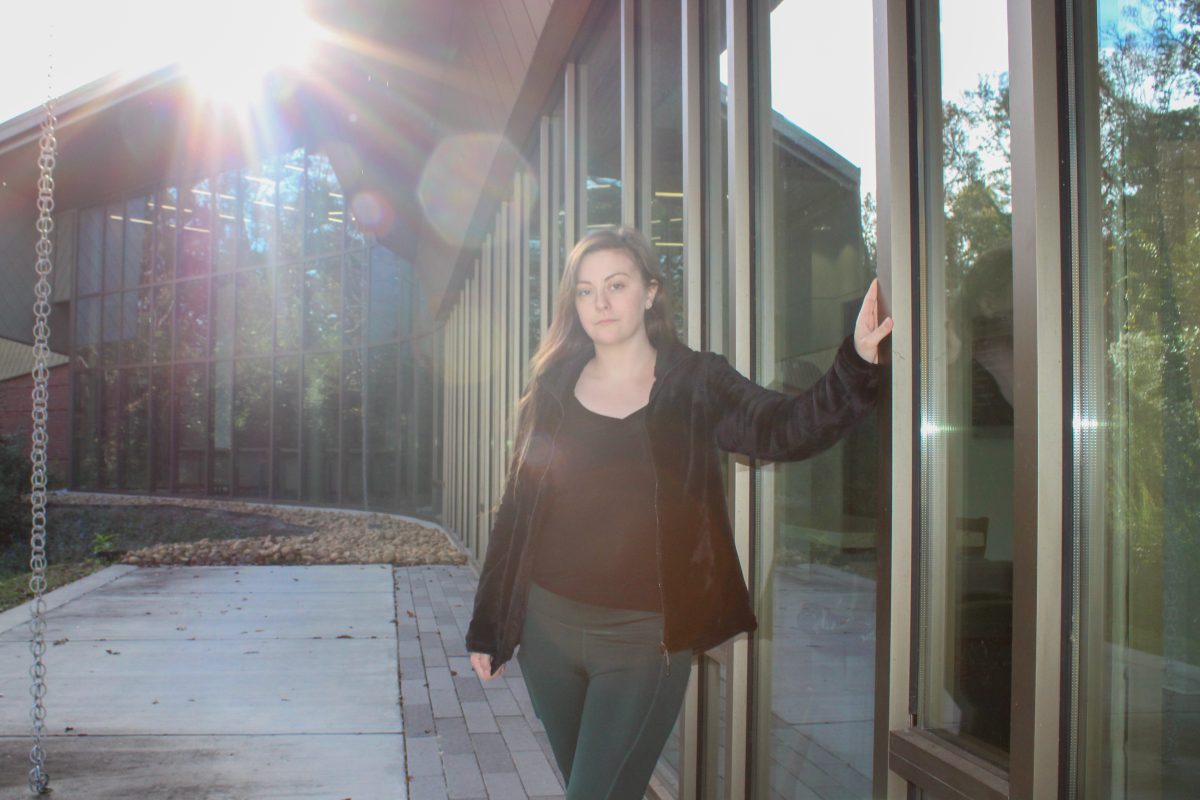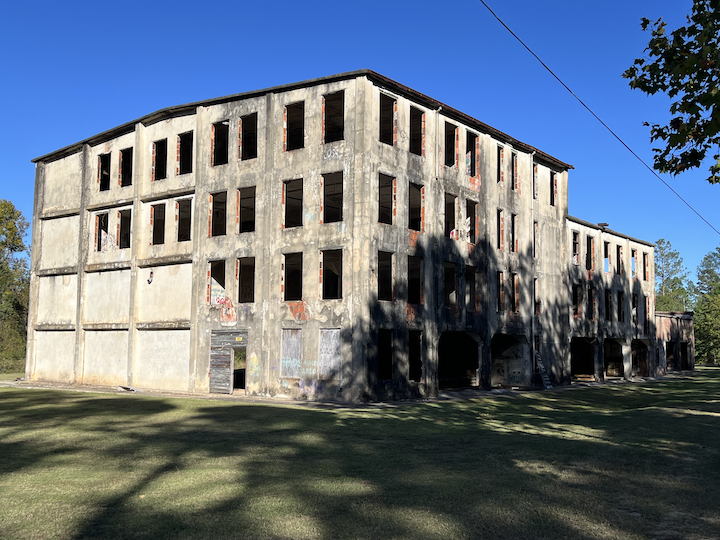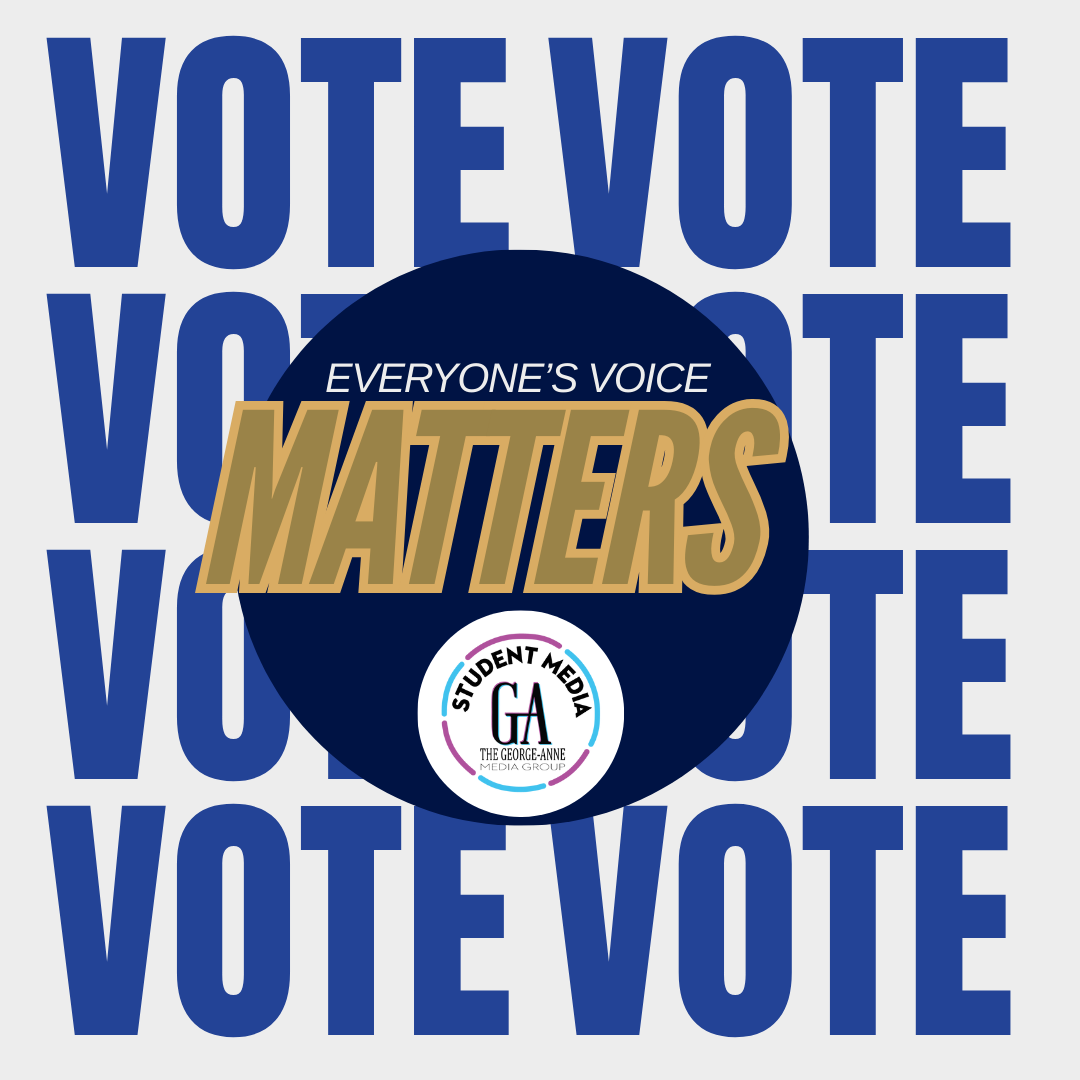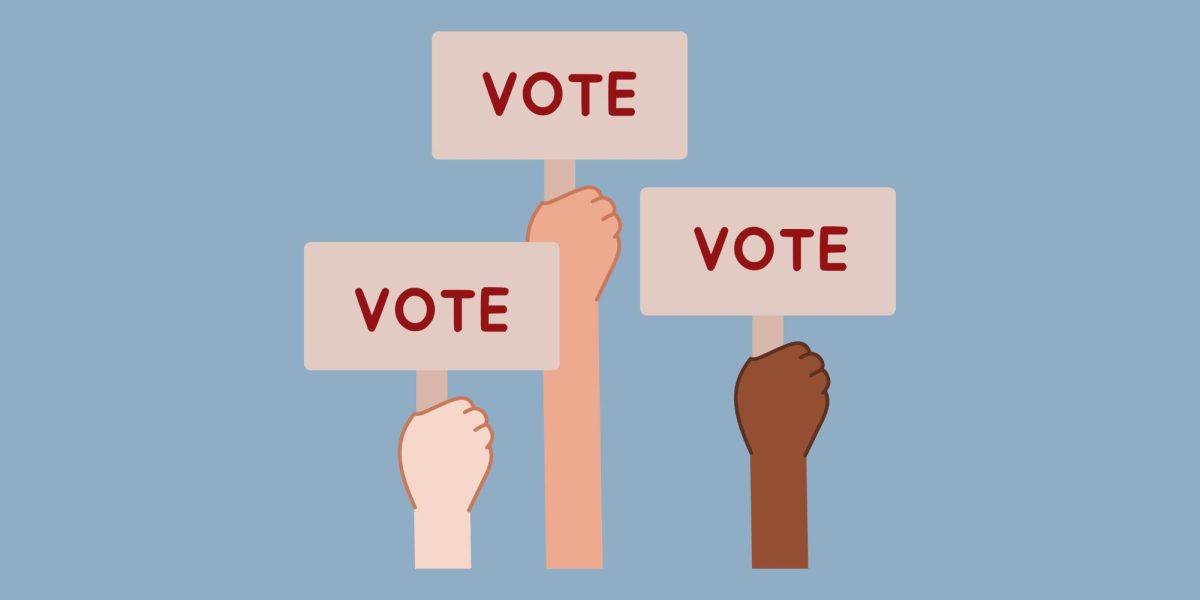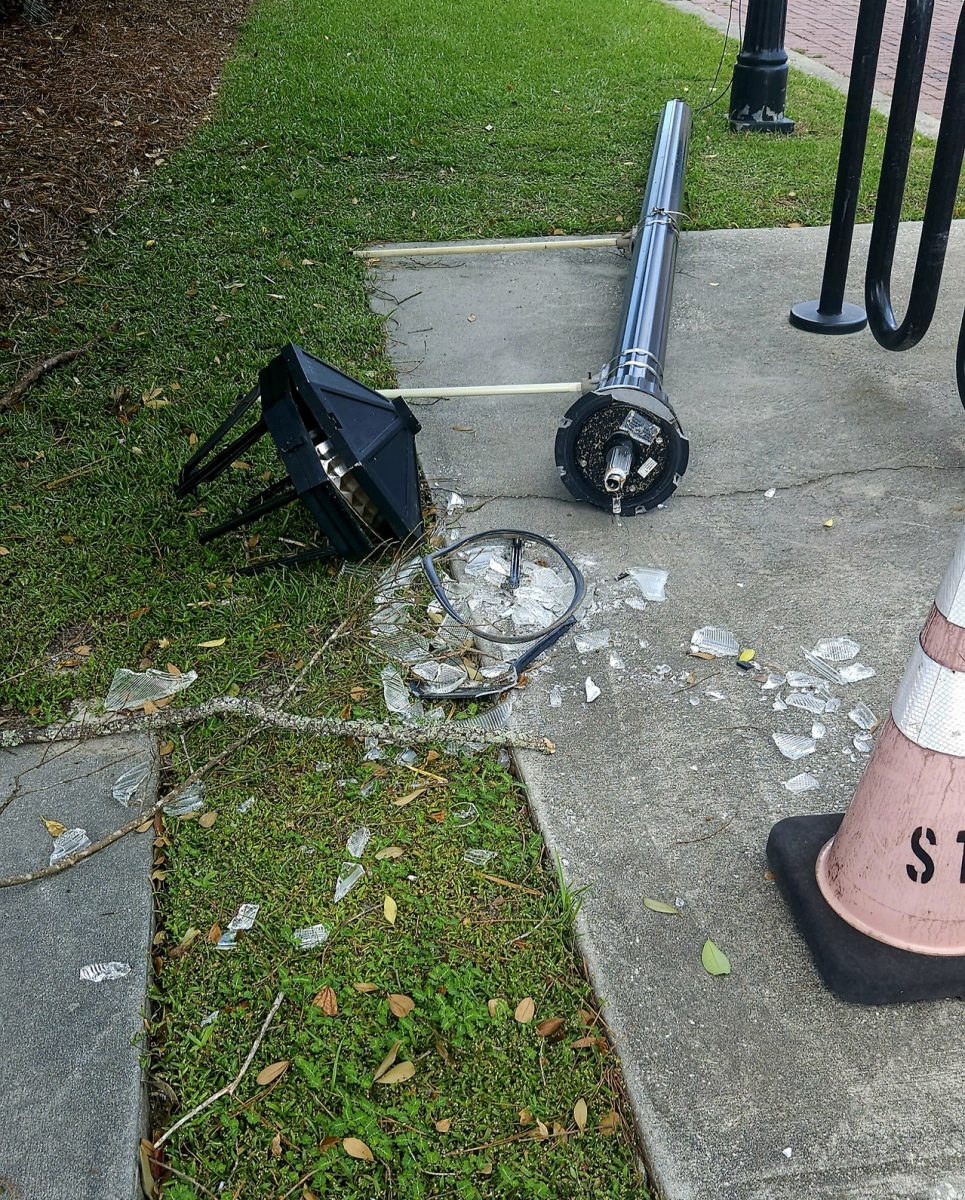A typical morning for Juliette Parker, a junior nursing major, begins at 5 a.m. She leaves her home in Pooler to take her son to a daycare in Richmond Hill, where drop-offs are allowed between 6 a.m. and 9 a.m. Afterward, she drops her partner off, as they share a family vehicle.
“Then I have to go all the way to Savannah, where my daughter gets dropped off at a friend who doesn’t mind watching her but I do have to pay her still,” Parker said. “So I pay her like $200 a week and she watches my daughter, and she lives off Skidaway and then I have to come back to Abercorn where I go to school and I need to be at school by like 8:45.”
With a focus on supporting student-parents at the Armstrong and Liberty campuses, Georgia Southern has been awarded a $1.6 million grant from the Department of Education. This grant is a part of the Child Care Access Means Parents In School (CCAMPIS) program and is aimed at providing childcare subsidies to eligible student-parents over the next four years.
This funding is part of a broader initiative by the Biden-Harris Administration, which announced over $13 million in grants to 34 higher education institutions.
Parker spends $290 a week for her son’s daycare, in addition to the $200 for her daughter’s care, excluding the daily gas expenses for her commute.
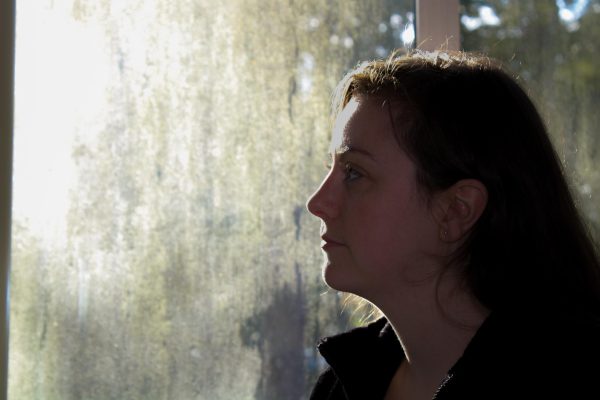
“One of the biggest issues is that in this area, all the daycares that are around here are full and they have waitlists, and so I’ve been on some waitlists for two years now,” Parker said.
“And usually they also require a $200 application fee just to get onto the waitlist, so you may have to pay that money and you never get a call back because if children don’t get taken out and move to somewhere else there’s just usually not a space that opens up or it’s not until they then grow up to the next developmental class or level that perhaps a spot may open up”, she explained.
The Impact of the Pandemic on Daycares
The COVID-19 pandemic has likely contributed to these challenges. The National Association for the Education of Young Children (NAEYC) conducted a survey of more than 12,000 early childhood educators across the United States.
In Georgia, 173 educators were surveyed, with 35 % reporting they are serving fewer children now than before the pandemic, and 21 % experiencing longer waitlists.
Of the early childhood educators surveyed, 58% indicated they would need to raise their tuition following the end of stabilization grants.
The federal government had allocated nearly $24 billion in stabilization funds to support childcare services as part of the American Rescue Plan of 2021. However, this program concluded at the end of September this year.
Natasha Collins-Farley, owner of Tot’s Learning Academy in Savannah’s Southside, is among those who will be increasing tuition starting in January due to the expiration of these funds.
“I was able to get some of it and it came in handy with increased salary, and buying and getting more of what we needed if we didn’t have it,” Collins-Farley said. “Now that the grant money is gone what do we do if we raise these employees up? How can we continue with the short amount of children that we have to continue to pay the salaries? So it was nice, but then I feel as though I kind of set us up for failure.”
“I’m not able to serve and that’s because I am short of employees working, and the reason why is because, like now, I’m down two teachers,” she said. “So I’m having to roll up my sleeves and work. I have posted on Indeed, I have posted, you know, put the word out there and no one seems to be interested these days in working.”
She added that COVID-19 had a significant impact on day-to-day operations, some of which persist.
“Right now my current waiting list is about 75 parents, and each week we seem to be adding more names to the list,” Collins-Farley said. “Before COVID, I had not seen this type of waiting list because we had the workers and we had the children.”
“I did luckily just get my son into our daycare recently, like two weeks ago but my daughter isn’t there yet,” Parker said. “They don’t have a spot for my daughter so I have to now take an hour and a half out of my morning to drop my son off, drop my daughter off and then for me to get to class with traffic and everything takes me like hour and a half and then I have to do it all over again in the evening.”
The CCAMPIS Program as a Beacon of Hope
The CCAMPIS program at Georgia Southern is designed to assist at least 30 student-parents annually on both the Armstrong and Liberty Campuses. It offers a subsidy of up to $150 per week for childcare services, which will be paid directly to the childcare providers. To qualify for this assistance, students must be recipients of the PELL grant.
“I’m hoping that students won’t have to prolong graduation because of having to work longer, work more hours and more days, thus not being full-time,” said Corine Ackerson-Jones, the director of TRIO Student Support Services (SSS) on the Armstrong Campus, who wrote the proposal on behalf of the Office of Inclusive Excellence.
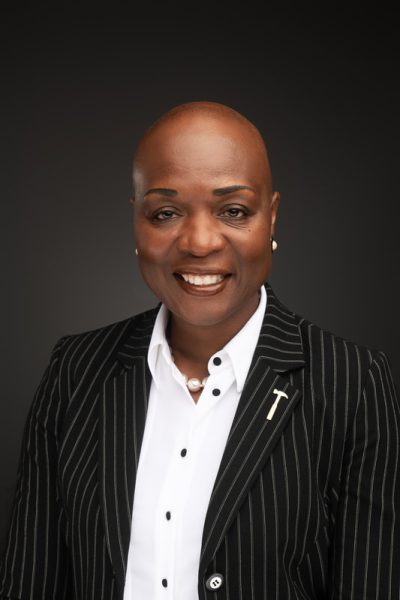
“I had one student parent say that sometimes they have to decide whether they’re gonna do groceries or pay their child care bill, and sometimes they get behind in a childcare bill, and their facility works with them on that, but not all facilities are going to do that”, said Ackerson-Jones
Ackerson-Jones, who has been a part of the Armstrong Campus since 2006, recognized the need for such a grant through her observations of the financial burdens faced by student-parents.
“When I was doing my research, I found that in some instances, a year of childcare can exceed the cost of going to a public four-year institution for a year,” she explained. “You know, if you want safe and affordable childcare you’re gonna pay for it, and a lot of instances I’ve found that it’s not necessarily because the entity is trying to drain the parent of monies, but it’s because of a lack of staff, a high turnover with staff, I mean those jobs don’t pay a whole lot of money.”
The potential impact of the new childcare grant is a source of hope for some student-parents, including Erica Greene, a junior psychology major and the Vice President of Armstrong and Liberty Affairs in the Student Government Association (SGA).
“I am so excited about the grant opportunity. Childcare is ridiculously expensive, and in the Savannah area, it averages around $195 per week. Receiving $150 to help with that will be a huge blessing. It’s already challenging balancing school and motherhood, not to mention the financial strain of daycare costs,” Greene shared.
Greene, juggling her dual roles as a student leader and a parent, has become very familiar with the art of time management.
“I have to time block like it’s nobody’s business. I can’t afford any slip-ups in my schedule. For example, I might work until 8 in the morning, then head straight to campus for classes until the afternoon, and then finally get a chance to rest before starting all over again,” said Greene.
While Greene appreciates the support she has received from Georgia Southern, Parker has faced more challenging circumstances.
Parker recounted an incident where she had to miss an exam review because her professor did not allow children on campus, and she couldn’t find a babysitter.
Parker is optimistic about the grant’s potential to alleviate some of these challenges.
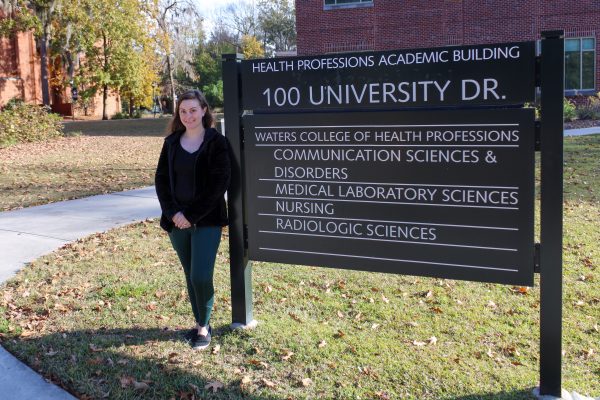
“For me and for any other parent who’s hesitant about pursuing college due to childcare costs, this grant could be a game-changer,” Parker said.
She emphasized that the grant could benefit mothers who often face the tough choice between staying home or bearing the high costs of daycare while working or studying.


